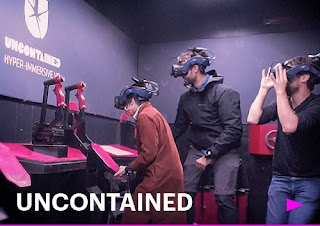I lost my job during the beginning of the Covid pandemic. Reevaluating what I wanted to do as a career I decided that I wanted to try and pursue a career in what I've always been interested in which is Virtual Reality and game development.
One Year to Become a Game Developer
I had zero knowledge about programming and Unity so I took a look at some of the game dev and computer programming educational programs in my area. I found that they were either way too expensive or the time-commitment was at least 2 years to complete which would be out-of-scope for me since I only had around a year I could dedicate to making the career transition based on my financial situation.
As a result I decided to self-study and learn on my own using online courses. Later on I was lucky enough to find a senior game developer in the industry who was willing to have a meeting with me every month with me to answer any questions I had.
After around a year I was able to land my first full time junior developer position at a VR company. I'm going to share how I got my first game developer job and the strategy I used to position myself as a prime candidate.
1 ) Research which Game Engine to focus on exclusively
There are two main ones. Unity and unreal. Make a list of ALL your local game studios and check out their career page. Especially, If you have a specific studio that you want to join. You'll want to know what game engine they primarily focus on. If a studio wants to hire a game developer they want someone who can help them right away and if you don't know how to use the game engine they use then your chances of getting hired isn't going to be great.
I recommend you research all the local studios to give your self maximum employability. Don't find yourself in a situation where you are learning a game engine that none of your local studios are using or only a few of them use the engine you are learning.
For myself, I found that there was a large number of local studios that use Unity as their game engine. Additionally, Unity is the subject of a ton of game dev online courses which made finding online courses easy.
Focusing on both Unity and Unreal in my opinion is not worth it unless you have a lot of time to make the career transition. To this day I'm still learning more about Unity and how to use its tool.
2 ) Evaluate what type of short games to create for your portfolio
As you are researching all the game studio career pages take note of both the type of game studio they are and what type of skills they are looking for on their game developer career pages.
Classifying the game studios and keeping track of how many of that type of game studio they are will help you figure out what games to build for your portfolio. Are there a lot of mobile game studios? Are they Console or PC game studios that make Shooters. Etc.
Game studios are going to be interested in developers who can help them make the games they are working. If you have a portfolio of games similar to what they are working on they'll have a easier time believing that bringing you onto the team will be beneficial. There's also game specific type knowledge that you can only learn from working on them. For example, programing and designing UI in a Virtual Reality game is very different from programming and designing UI for a 2D mobile game.
If you find that there are several game studio cluster types you have the option of choosing what you personally prefer.
Collecting information on the type of skills they are looking for from their career pages posting for game developers will help you figure out your own personal developer learning plan. Since I only had 1 year to learn focusing on the right skills was very important to me.
Since I already decided to be a VR game developer I spent most of my efforts focused on research the local VR game studios. I found that most of them used Unity and were developing for the Quest which made it easier to choose what skills to learn and to ignore.
3 ) Create an effective self learning plan
Find all the local programs or schools in your area that are designed to help people become game developers. Their website usually has a webpage that provides a program outline of their curriculum. Looking at that will give you all the major topics that a game developer coming from their program is expected to know. You will be competing against graduates from these programs and by taking a look at their program you can make sure you can have a similar knowledge base to them. I'd also recommend you reach out to them and request a program outline if they don't have anything on their website. They usually provides these for prospective students. These schools/programs usually also have an industry night or graduation showcase which is usually free for the public to attend. Going to these give me a sense of what level of quality my portfolio games needed to be at as well as a great opportunity to ask them questions about their games.
4 ) Attend all industry events
Networking and meeting people in the industry will give you a massive boost to your employability. Attend all game industry events that you can and try to stay connected with as many people you meet as you can.
